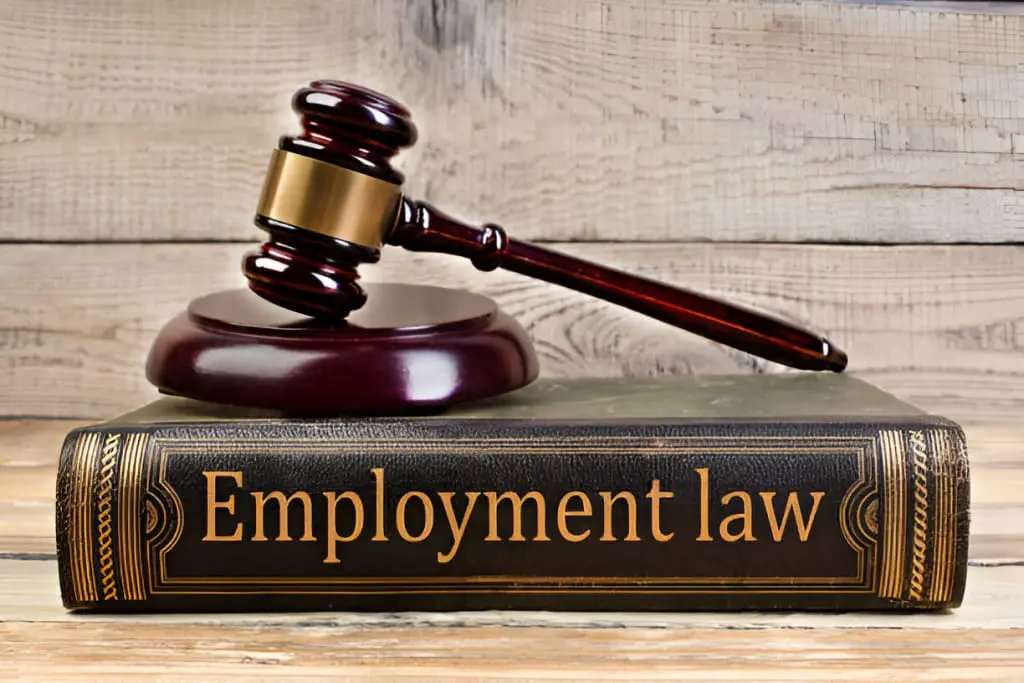
What Does an Employment Lawyer Do?
Employment lawyers focus on a wide range of legal issues related to employment and labor laws. They can help both employees and employers navigate legal challenges, negotiate contracts, and resolve disputes. Here are some of the core functions of an employment lawyer:
- Wrongful Termination: If you believe you’ve been fired unfairly or in violation of your legal rights (such as retaliation for whistleblowing), an employment lawyer can assess your case and help you determine whether you have grounds for a lawsuit.
- Discrimination and Harassment: If you’ve faced discrimination based on race, gender, age, disability, religion, or other protected categories, an employment lawyer can help you pursue legal action against your employer. Similarly, if you’ve been the victim of workplace harassment, they can guide you on how to address the issue legally.
- Wage and Hour Disputes: Employment lawyers can help employees with unpaid wages, overtime disputes, or misclassification of workers. If you are not being compensated fairly for the hours you work, they can help you recover your wages.
- Employment Contracts and Agreements: If you’re negotiating a job offer, severance agreement, or non-compete clause, an employment lawyer can review the terms, help you understand your rights, and ensure that the agreement is fair.
- Family and Medical Leave: Employment lawyers help employees understand their rights under laws like the Family and Medical Leave Act (FMLA), which allows workers to take unpaid leave for certain family or medical reasons.
- Retaliation Claims: If you’ve been punished for filing a complaint about workplace violations or participating in an investigation, your lawyer can represent you in a retaliation case.
- Workers’ Compensation: If you’ve been injured at work, an employment lawyer can help you navigate workers’ compensation claims and ensure you receive the benefits to which you’re entitled.
When Do You Need an Employment Lawyer?
While you may not always need an attorney to resolve workplace issues, there are certain situations where hiring an employment lawyer is crucial:
1. Discrimination or Harassment
If you believe you’ve been discriminated against or harassed due to your race, gender, sexual orientation, religion, or other protected characteristic, you should contact an employment lawyer. They can help you understand your legal rights and options for seeking compensation or pursuing a case.
2. Wrongful Termination
If you’ve been fired and suspect it was illegal (for example, based on retaliation, discrimination, or breach of contract), you may have grounds for a wrongful termination claim. An employment lawyer will assess your situation and advise you on whether legal action is warranted.
3. Wage Theft or Unpaid Wages
If your employer is refusing to pay you overtime, commissions, or any other form of earned wages, an employment lawyer can help you file a claim to recover the money you are owed.
4. Violations of Employment Contracts
Employment contracts often include specific terms regarding your role, compensation, or benefits. If you believe your employer has breached the contract, a lawyer can help you seek enforcement or resolve any disputes.
5. Retaliation
If your employer retaliates against you for reporting unethical behavior or participating in an investigation, you may need legal support. An employment lawyer can help you understand your rights and take action against the retaliation.
6. Legal Guidance on Benefits or Family Leave
If you're dealing with complications related to medical leave or employee benefits, a lawyer can guide you through the process and ensure that your rights under applicable laws are upheld.
How to Choose the Right Employment Lawyer
Selecting the right employment lawyer is crucial to ensuring that your legal issues are addressed properly. Here are some factors to consider when choosing an employment lawyer:
1. Expertise and Experience
Look for a lawyer with experience in the specific area of employment law relevant to your case. If you’re dealing with wage disputes, wrongful termination, or discrimination, choose a lawyer who specializes in those issues and has a proven track record of success.
2. Reputation and References
Ask for recommendations from trusted colleagues, friends, or family members who may have worked with employment lawyers in the past. Checking online reviews and reading testimonials can also give you an idea of the lawyer’s reputation and effectiveness.
3. Clear Communication
A good employment lawyer should be easy to communicate with and willing to take the time to explain your options. They should be responsive to emails and phone calls and transparent about the legal process.
4. Cost and Payment Structure
Be upfront about the lawyer’s fees and how they charge for services. Some employment lawyers work on a contingency fee basis, meaning they only get paid if you win your case, while others charge hourly rates or flat fees. Make sure to understand the payment structure before proceeding.
5. Availability and Support
Employment law cases can be complex, and you’ll need a lawyer who is available to answer your questions and support you throughout the process. Ensure that the lawyer has the time and resources to dedicate to your case.
Common Employment Law Issues and Solutions
To give you a clearer picture of what employment lawyers handle, here are some common issues and how they can help resolve them:
| Issue | How an Employment Lawyer Helps |
|---|---|
| Wrongful Termination | Investigates the cause of termination, reviews contracts, and pursues claims if the termination was unlawful. |
| Discrimination | Files complaints with government agencies (like the EEOC) or represents you in court to address workplace discrimination. |
| Harassment | Represents victims of harassment, helps file complaints, and ensures corrective action is taken by the employer. |
| Wage Disputes | Helps employees recover unpaid wages or overtime and ensures proper compensation for their work. |
| Family Leave Issues | Assists with claims related to FMLA violations or unpaid leave, helping employees secure their legal rights. |
Benefits of Hiring an Employment Lawyer
Hiring an employment lawyer can provide numerous benefits, including:
- Protection of Your Rights: Lawyers ensure that your rights are upheld and that you are treated fairly under the law.
- Expert Advice: Employment law can be complex, and a lawyer provides guidance tailored to your specific situation.
- Time and Stress Savings: With an experienced attorney handling your case, you can focus on your work or personal life without worrying about the legal complexities.
- Better Outcomes: Legal representation improves your chances of winning your case and securing a favorable settlement or compensation.
- Negotiation Skills: Employment lawyers are skilled negotiators, making it easier to reach a fair resolution in settlement talks.
Conclusion: Why You Should Hire an Employment Lawyer
Navigating employment-related issues can be daunting, but with the right employment lawyer by your side, you can rest assured that your rights are protected. Whether you're facing wrongful termination, wage theft, discrimination, or harassment, a skilled lawyer can guide you through the process and help you achieve the best possible outcome.
If you believe your employment rights have been violated, don’t hesitate to consult with an employment lawyer to understand your legal options and take action. The right attorney can help you reclaim your rights and secure justice in the workplace.






